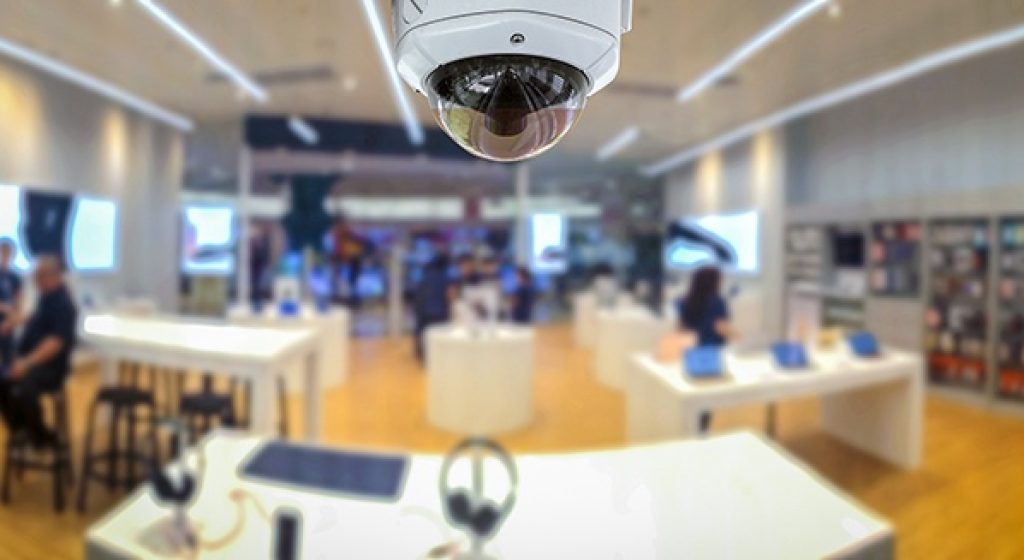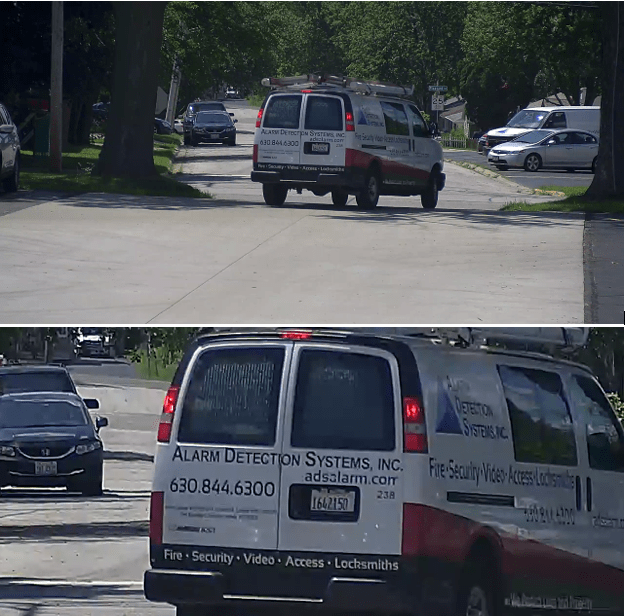Let’s start with business security camera basics 101. The fundamentals of capturing an image with a lens and saving it to an image are universal. Camera resolution, frame rate, and file size narrow the selection based upon customer requirements. A security camera’s primary function is to observe a designated area and store that information for later review.
When it comes to video surveillance, there are several requirements to consider. The first being the image capture itself. Indoor and outdoor cameras see the world differently. Lighting is a consideration that many integrators overlook when placing cameras. Different camera types perform better in low-light conditions.
The second central pillar of business security cameras is the amount of time they are active and what happens during a security event. For example, inputs and outputs on cameras allow for interactions with other devices such as door keycards, temperature sensors, and other security peripherals. When a delivery truck leaves an outdoor storage yard, a motion detector can signal the camera to send a video alert.
The same action can happen with the swipe of a keycard at a door entrance during unusual hours. In an integrated security plan, the possibilities are endless. Alarm Detection Systems, Inc. installs advanced camera systems that, when triggered, can verify the presence of an actual person based on size, with the use of analytics.
The last central pillar of business security cameras is when and where the footage on these systems needs to be stored and how frequently it is accessed. Higher resolution video leads to increased storage needs. For a business that requires cameras to be recording full-time, storage capacity vs. quality quickly becomes an issue.
Up until 1996, traditional analog cameras were the gold standard of video surveillance. A common term used in the security industry is CCTV (closed-circuit television). It truly is a closed system, as the name suggests, with cameras sending a signal over traditional coax cable wire to a Digital Video Recorder (DVR) somewhere onsite.
DVRs are physical devices that sit on a shelf somewhere. It is optional to hook a router to a DVR to store video clips on the cloud. If a thief were to steal such a device from your location, and there was no internet connection, the captured footage would go with them.
Internet Protocol (IP) cameras transmit signals on the same standard network cable used by computers or wirelessly. IP Cameras give the user an option to send video either directly to the cloud or save it on local storage. Such a device could either be a Network Video Recorder (NVR) or a memory card.
Even the camera digitization is a different process with IP video. The image scanning process happens right on the camera sensor. It essentially becomes a smart, stand-alone unit with an array of intelligence capabilities.
IP Camera Pros
IP cameras systems for businesses hold many advantages over their analog counterparts.
Video Quality
The best analog camera resolution equates to roughly half a Megapixel. The video quality of even a 1.3, 2, or 3 Megapixel IP camera, will offer substantially higher video quality to analog. IP cameras capture a much more full field of view than their analog equivalents.
If facial recognition or license plate reading is a requirement for your business, specific IP camera models will perform better in this area as well. The combination of digital zoom and greater image detail gives these devices an edge as well. If your equipment is not capturing the detail you require, it may be time to upgrade to IP.
Number of Cameras
IP cameras often incorporate multiple cameras in one unit. Having various video site ranges, such as a narrow or wide field of view, make IP cameras a flexible choice when setting up video surveillance. One IP camera could potentially do the job of multiple older models. This reduction in equipment could mean significant cost savings at the time of upgrade.
Analog Camera Pros
Many analog security cameras still perform better in low light conditions than IP models. Traditional analog CCTV cameras tend to be less expensive. If you have a 40,000-foot facility already wired with coax cable, the move to an IP system can be a significant investment. One of the reasons to change over your network may be to take advantage of newer alarm technology such as video-verification.
HD-over-Coax: The Middle Ground
A cost-saving option to take advantage of newer higher resolution cameras without ultimately moving to IP is to use HD-Over-Coax. This option uses 1080P HD cameras on the existing cable network from a previous installation. Upgrading can be as easy as switching out a single camera and DVR. With its reduced storage requirements and plug-in options, it can extend the life of a surveillance system for quite some time.
The bottom line
Security cameras are as unique as the businesses they protect. At ADS, we strive to help clients protect their property at the best value possible. Often, no single camera can do it all. It comes down to a combination of technology, years of experience, and service to provide reliable video surveillance. Analog or IP, we are the local provider that can help you find the answers to your security questions.
About Alarm Detection Systems, Inc.
Alarm Detection Systems is one of the largest alarm firms in the country. Family-owned since 1968, we provide business alarms, fire alarms, card access, security cameras, and home security systems. Proudly servicing Chicagoland, Northern Illinois, Northwest Indiana, and Southern Wisconsin in the Midwest. Call us at 630.844.6300 for more information.
In Colorado, we service all of Denver, Boulder County, Northern Colorado, the Eastern Plains, and Colorado Springs. Call us at 1.800.446.7519 for more information.




